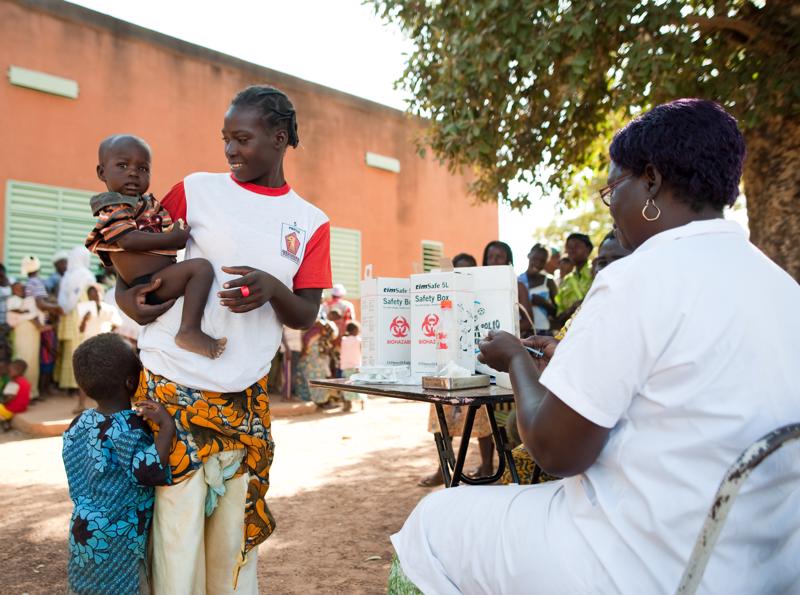My diary
Being particularly tired from the long day, it has been nice to start the lecture with a game instead of having to understand theoretical stuff. I however never been particularly interested in diseases or viruses of any kind and – yes, even if I’ve heard about the dengue fever – I did not know what it was really about. I found nonetheless the game we played very interesting and quite realistic also – as a matter of fact, I’ve always thought that in these kinds of cases viruses always have the upper hand on humans… I was on the team ‘humans’ and, even if sometimes we got all the three fingers of the mosquitoes pointing at only one of us, we had been able to put up a fairly nice strategy
lucagambelli1505
15 chapters
16 Apr 2020
Day Ten: Viruses and Vaccines
May 08, 2019
Being particularly tired from the long day, it has been nice to start the lecture with a game instead of having to understand theoretical stuff. I however never been particularly interested in diseases or viruses of any kind and – yes, even if I’ve heard about the dengue fever – I did not know what it was really about. I found nonetheless the game we played very interesting and quite realistic also – as a matter of fact, I’ve always thought that in these kinds of cases viruses always have the upper hand on humans… I was on the team ‘humans’ and, even if sometimes we got all the three fingers of the mosquitoes pointing at only one of us, we had been able to put up a fairly nice strategy

that was making us win in the long run – although we must admit that our strategy was solely based on a kind of psychological analysis of our adversaries…
The game overall gave a clearer view of the concepts of risk management, and especially risk prevention, studied so far; it actually reminded me of a Global Conversation we had few weeks before with an important professor and scientist expert in the theme of viruses and diseases, Vittorio Colizzi, talking about the situation in Africa. According to him the problem greatly lies in the socio-political approach and not that much on medicine in general: as a matter of fact, while we cannot force progress to find new and better ways to cure epidemics as much as we finance it, we can actually do way better from a ‘people-centred’ point of view. In particular, in most of Africa a big issue is the perception of the disease itself but also of the external help coming from the advanced countries able to supply the required vaccines and proper medication: it often happens that the so called advanced world gets accused to not sufficiently provide the right vaccines to stop the spreading of whatever virus but it is also true that most of the time – since a big stigma is usually attached to any illness – it is just difficult to find the infected people to cure for the simple reason that they are not even able to admit they actually suffer from such illness. Besides this, many are the improvements made against diseases and viruses, from vaccines of every type to different effective forms of prevention, and according to Yuval Noah Harari people dying from any disease have diminished exponentially.
Of course, while talking about viruses and epidemics, we cannot refuse to mention the big issue going on about vaccines, the debate between the so called pro and anti-vax. Many are the points of disagreement, from the dangerousness brought by the vaccines to the right of the State to force people to take vaccines or the argument that we cannot expose a whole country to the risk of epidemic just because a small minority does not want to take them – but I think it is a bit like the game: humans should have worked together with the goal of avoiding that any of them would have run out of blood, thus cooperating and sharing – and if vaccines are a form of prevention not only for ourselves but also for those who surround us then we should be the first (without even the need for the national government to impose it) to take actions and get vaccinated for the good of all.

1.
Day One: New Possibilities
2.
Day Two: Hazards in Sardinia
3.
Day Three: 2016 Louisiana Flood
4.
Day Four: Resilience and Structural Changes
5.
Day Five: the Development Loop Theory
6.
Day Six: New Inclusive Growth
7.
Day Seven: Culture and Different Perspectives
8.
Day Eight: Social Safety Nets
9.
Day Nine: Swimming Competitions
10.
Day Ten: Viruses and Vaccines
11.
Day Eleven: the Psychology of Reactions
12.
Day Twelve: Outrage
13.
Day Thirdteen: a Recovery to Migration?
14.
Day Forteen: Building back Communities
15.
Day Fifteen: the Final Choice
Share your travel adventures like this!
Create your own travel blog in one step
Share with friends and family to follow your journey
Easy set up, no technical knowledge needed and unlimited storage!